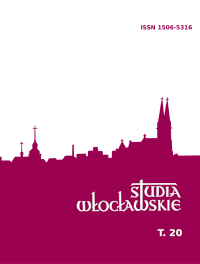The Church participation in the unification of Europe after the second war
Keywords:
Apostolic See, European Union, European integration, ChristianityAbstract
Europe has been associated with Christianity since the beginning of the activity of the Apostles St.Peter and St.Paul in Rome. At the end of the Second World War, the Holy See related favorably to the idea of unifying Europe and believed that the unification should embrace all countries that recognize Christianity as the basis of European civilization. The Holy See established a formal diplomatic relationship with the European Community in 1970. John Paul II, who from the very beginning of his pontificate took on the responsibility for the spiritual and moral face of Europe, paid special attention to European issues. According to the Pope, the Church and Europe have been two realities closely connected with each other for centuries. At the time of Poland’s accession to the European Union, the Catholic Church in Poland is aware that this fact accelerated the exchange of experience, which may result in a new quality in our experience of faith. In spite of the positive attitude of the Church towards the unification of Europe, some fears have emerged among some European politicians that Christianity and the Roman Catholic Church are not necessary for the fruitful unification of our continent. The Maastricht Treaty (1992), followed by the Treaty of Lisbon (13 XII 2007), the both establishing the European Community turned out to be thought-provoking. The latter assumed the adoption of the so-called Charter of Fundamental Rights, which Poland together with the Czech Republic and the United Kingdom have not signed. Every country acceding to the European Union is obliged to respect the so-called European values that are inaccurate and sometimes even contrary to Christian principles.

